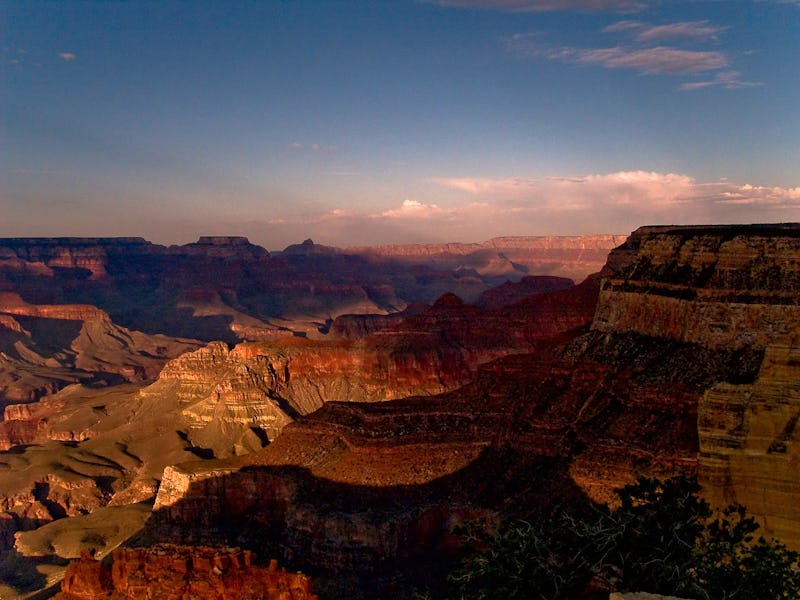Creationist Geologist Sues Parks Service For Discrimination
Andrew Snelling, PhD, wants to prove that the Grand Canyon formed after Noah's flood.

Geologist Andrew Snelling has sued the U.S. government and staff at the Grand Canyon National Park for failing to grant him permission to remove rocks from the park for the purpose of research.
The kicker? Snelling is a creationist, specifically a Young Earth creationist. He takes the words of the Bible literally and dates the age of our planet to just thousands of years.
But Snelling, who earned his PhD in geology, was educated at one of the premier geology programs in the world, at the University of Sydney in Australia. Evidence of a past life as a mainstream scientist has dissipated; since 2007 he has been employed with Ken Ham’s Answers in Genesis, the same organization that last year opened a Noah’s Ark theme park in Kentucky.
The Grand Canyon is central to Young Earth philosophy, as supposed physical evidence of Noah’s flood, a geological feature carved all at once in a great erosional event.
Snelling contends that, by denying him a research permit, the National Parks Service violated his right to speech and his freedom of religion. “This is a civil rights action to protect the statutory and First Amendment rights of an individual to perform geological research in a public park,” according to the document filed in district court in Arizona.
Snelling’s own evolution as a Young Earth geologist took place primarily in the 1980s and early 1990s. He was living a double life, publishing a stream of mainstream academic reports as a mining geology consultant, referencing rocks 2.5 billions years old or older. At the same time, however, he was publishing in creationist journals that mainstream geology conventions should be thrown out in favor of ones that fit the biblical creation story and explain fossils and geological features as evidence of Noah’s flood. Now, he sticks to the latter narrative — though creationism continues to benefit from his mainstream training in geology.
The lawsuit rests in part on the idea that science is just a collection of competing ideas, with none more inherently valid than another, that compete on their ability to get people to believe them rather than on evidence. It contends that Snelling’s research is being rejected because it is contentious and grounded in religion, rather than it being ungrounded in science. It’s worth noting that many Christian geologists reject the Young Earth hypothesis and find that there’s nothing in conflict between mainstream science and a biblically-inspired worldview.
Snelling’s complaint contends that he was given the bureaucratic rigamarole for three years and that rules were made up along the way in an effort to exclude him. This may very well accurately reflect the facts of the case, in which case the suit will come down whether or not it was legal for the Parks Service to exclude someone who calls himself a research scientist but proposes ideas that are unsupported by the evidence.
Creationist geology isn’t science at all, but a pseudoscience that takes a conclusion as given and does its best to smash evidence where it fits between. It’s akin to believing the Earth is flat and setting out to investigate the planet from that assumed perspective.
Snelling is perhaps counting on political winds being in his favor. His suit quotes an executive order from President Donald Trump on freedom of speech and religion. He may also be counting on a popularity contest — the lawsuit demands a jury trial.